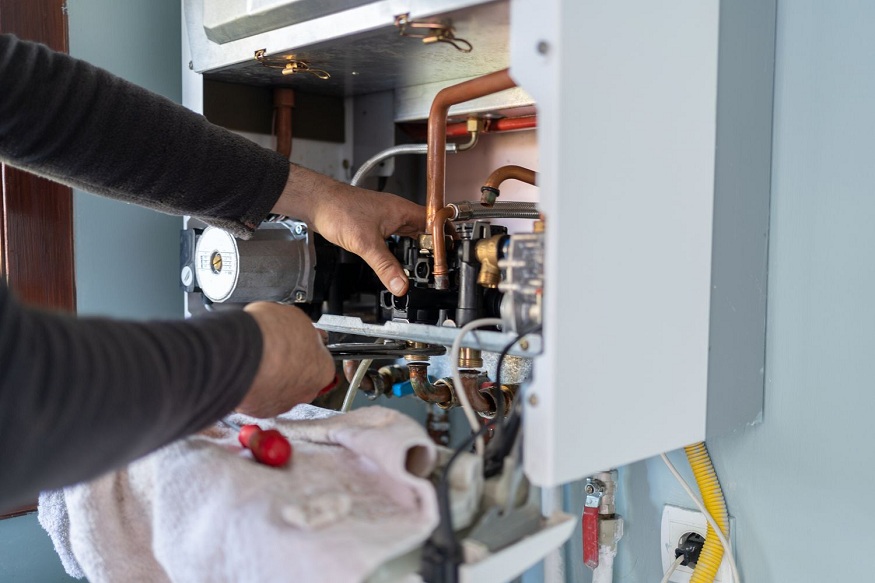Most Massachusetts homeowners only think about their heating system when something goes wrong, usually when a furnace repair is already needed. But one of the simplest ways to avoid breakdowns, keep energy bills in check, and extend the life of your system is by replacing your furnace filter regularly. The question is: how often should you do it?
Why Furnace Filters Matter
Your furnace filter does two important jobs. First, it keeps dust, dirt, and allergens from circulating through your home. Second, it protects your furnace by stopping debris from clogging the system. When the filter is dirty, airflow decreases, the furnace works harder, and both efficiency and indoor air quality suffer. If neglected long enough, it can even lead to a premature furnace replacement.
General Replacement Guidelines
The frequency of filter changes depends on thickness and usage. Standard filters that are one to two inches thick usually need replacing every month or two. Medium filters (three to four inches) can often last three to six months, while high-capacity filters (five to six inches) may last up to a year.
Of course, these numbers are just guidelines. Massachusetts homeowners often find their filters clogging faster because of long heating seasons and regional air quality factors.
Massachusetts Factors That Shorten Filter Life
One major factor is the extended cold season. Furnaces in New England run heavily from late fall well into spring, which means more dust and particles are constantly passing through the system. Seasonal allergens like spring pollen also contribute to faster filter buildup, especially in homes where family members have allergies or asthma.
Pet owners face another challenge. Hair and dander can quickly overwhelm a filter, making monthly changes a smart choice even with higher-grade options. And location matters too; urban homes closer to Boston traffic often have more airborne pollutants compared to rural or suburban areas, leading to shorter filter life spans.
Signs Your Filter Needs Changing
While following a schedule helps, it’s also important to recognize the warning signs. A sudden rise in energy bills, more visible dust settling around your home, or weak airflow from your vents usually point to a clogged filter. Some families also notice more frequent allergy flare-ups or asthma symptoms. If you take the filter out and it looks gray or visibly dirty, it’s definitely time for a replacement.
Choosing the Right Filter
Filters are rated by their MERV score, which indicates efficiency. A filter in the MERV 5–8 range works well for most households and balances cost with performance. Families with allergies may prefer a higher rating, such as MERV 9–12, since these trap smaller particles. Ultra-high MERV ratings above 13 are hospital-grade and not always necessary for residential systems; they can even restrict airflow if your furnace isn’t designed for them. It’s always best to check your system’s manual before upgrading.
When to Call a Professional
Changing a furnace filter is a quick and easy task, but sometimes the problem goes deeper. If you’re swapping filters regularly and still dealing with uneven heating, strange noises, or persistent airflow issues, it may be time to call in the experts. For homeowners in Massachusetts, Kerivan-Lane is a trusted resource, offering skilled heating services that range from seasonal tune-ups to complete furnace repair and even furnace replacement when needed.
Save Money and Comfort with Timely Furnace Filter Changes
In Massachusetts, replacing your furnace filter every one to three months during the heating season is a safe rule of thumb. But your individual situation, whether you have pets, allergies, or live in a city may require more frequent changes. Staying proactive not only improves air quality but also extends the life of your system and keeps energy costs under control.
Think of it this way: a furnace filter is small, inexpensive, and easy to replace, yet it has a big impact on your home’s comfort. By keeping up with filter changes, you can avoid costly furnace repair down the road and enjoy reliable warmth throughout the coldest New England winters.

